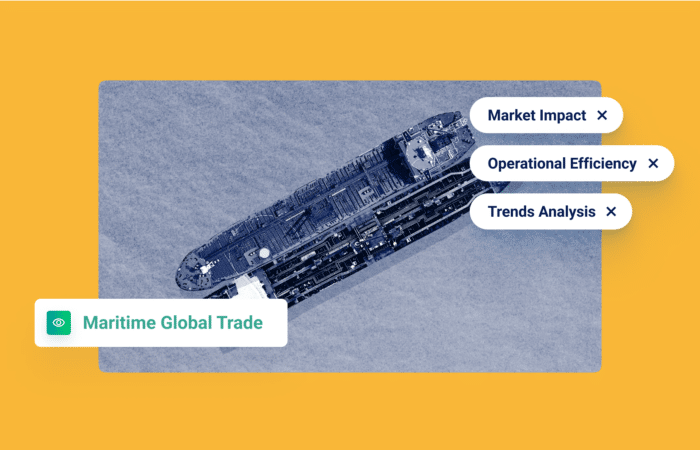What’s inside?
With Iran sending a warship to the Red Sea at the beginning of January after the U.S. Navy sank Houthi vessels, the global crisis has already turned one of the traditional paradigms of maritime and supply chain risk on its head…
Shining a Light on Going Dark
Windward’s From Dark to Zombie: the Full Deceptive Shipping Practices (DSP) Guide explains how dark activities are a “classic” DSP that have traditionally been used to evade detection for activities such as smuggling, but that many bad actors have abandoned this tactic for more sophisticated methods:
“‘Going dark’ (disabling the AIS system) is still popular, but sophisticated bad actors now understand that a vessel worth millions of dollars is too expensive to risk going dark for a single transaction. If identified, the vessel, crew, and owners will not only be exposed to sanctions, but will also suffer from seized cargo and lasting reputational damage. And having a vessel idle for a long period of time could prove costly.”
The repeated Houthi attacks in the Red Sea region have reversed this concept. Windward’s NEW AI-driven Trade Patterns and Risk Insights Report shows that while dark activity was used by bad actors to conceal their illicit activities, it’s now being employed somewhat frequently in the Red Sea area by law-abiding vessels to avoid terror attacks.
We’ve seen this phenomenon before, such as when vessels would go dark to avoid Somali pirates. But the number of otherwise legitimate vessels that are currently utilizing this technique is noteworthy…
A Few Numbers
The monthly average of lost AIS transmissions in the Red and Arabian Sea by cargo and tanker vessels increased by 58% and 55%, respectively, during November-December 2023.
This corresponds with earlier reports from media outlets such as Reuters, which found that container ships have been turning off their transponders. “Most ships will be turning off their AIS (transponders) at some point in those waters,” according to a shipping industry source.
A breakdown of the cargo vessel subclasses in Windward’s new report shows that container vessels were the most affected, with an increase of 77% in December 2023, compared to the rest of the year.
It’s worth noting that there is evidence to suggest that going dark does NOT protect ships from Houthi attacks. In fact, the Houthis may be looking for that tactic when deciding which vessels to attack.
While some vessel crews traversing the Red Sea seem most concerned with avoiding Houthi missiles, others may primarily fear hijacking. The monthly average of vessels transmitting “Armed Guards on Board” has increased since the Houthis began their attacks.
December 2023 marked an increase of 23% and 22% from the monthly averages of 2023 in the Arabian and Red Seas, respectively.
Trade Routes
Maersk’s announcement is the latest example of how quickly this fluid situation keeps changing. How have trade routes changed?
The head of the International Maritime Organization, a U.N. agency, said 18 shipping companies are rerouting ships around South Africa to avoid attacks in the vital Red Sea corridor, adding significant time and expense to their journeys. Our Trade Patterns and Risk Insights Report quantifies the effect last month, before some of these latest moves.
The second week of December marked a 70% decrease in container vessels passing through the Bab-al-Mandeb strait. In parallel, there was a 136% increase of voyages through the Cape of Good Hope. Vessels are taking a longer, presumably safer route that can add 10-14 days to their voyages, which will obviously have deleterious effects on the global supply chain and economy if sustained. Check out one expert’s take on possible effects.
There was also a 142% increase in general cargo and bulk carrier vessels passing through the Magellan strait in December, when compared to November 2023.
You’ll Learn MUCH More at Our Webinar…

Register for our upcoming webinar!
This blog post is just a SMALL taste of our recently released risk report. It also has must-see, AI-powered insights regarding tanker voyages from Venezuela, location (GNSS) manipulation, Russian oil exports, and a new hub for ship-to-ship meetings. Check it out now.







